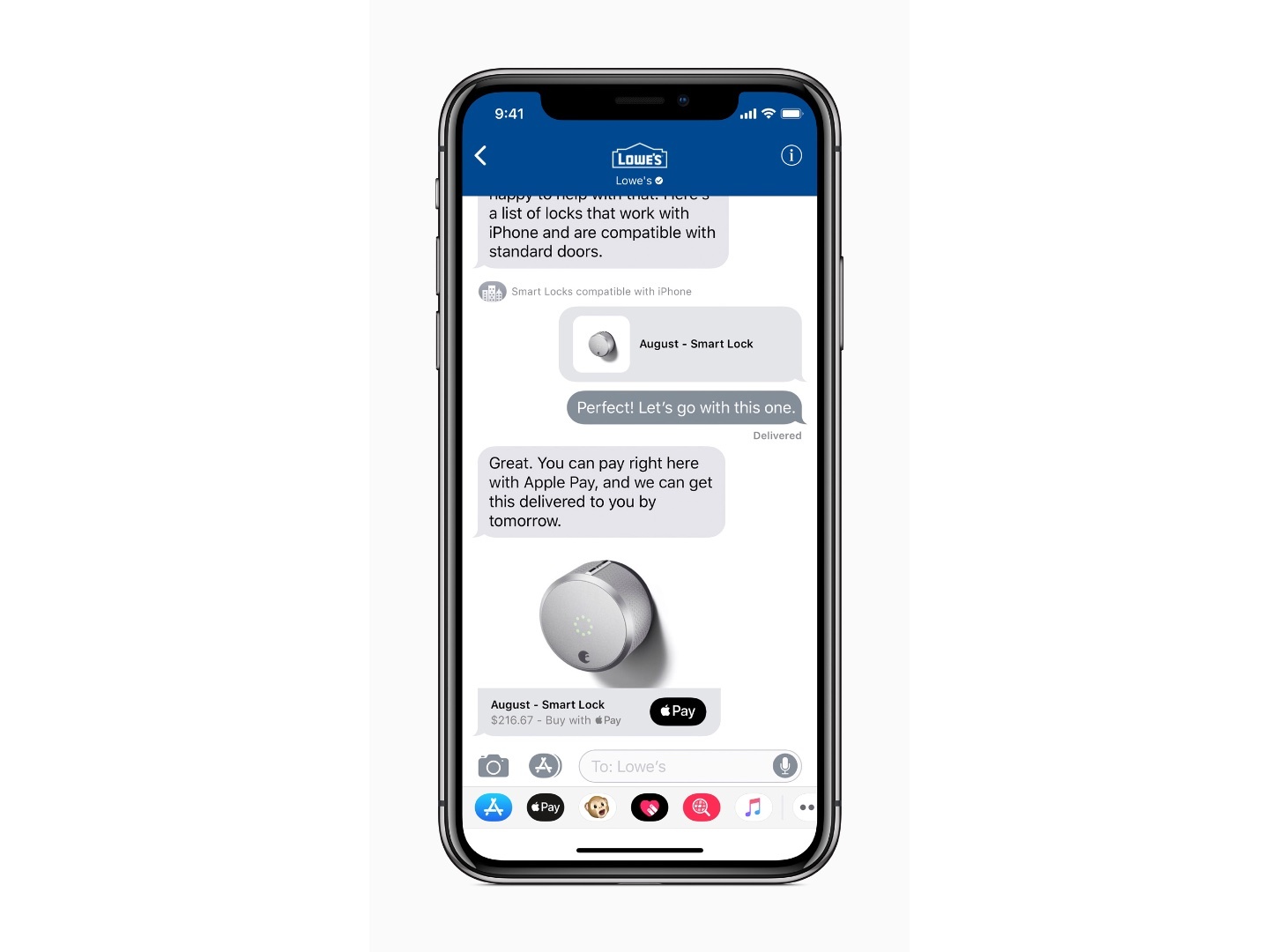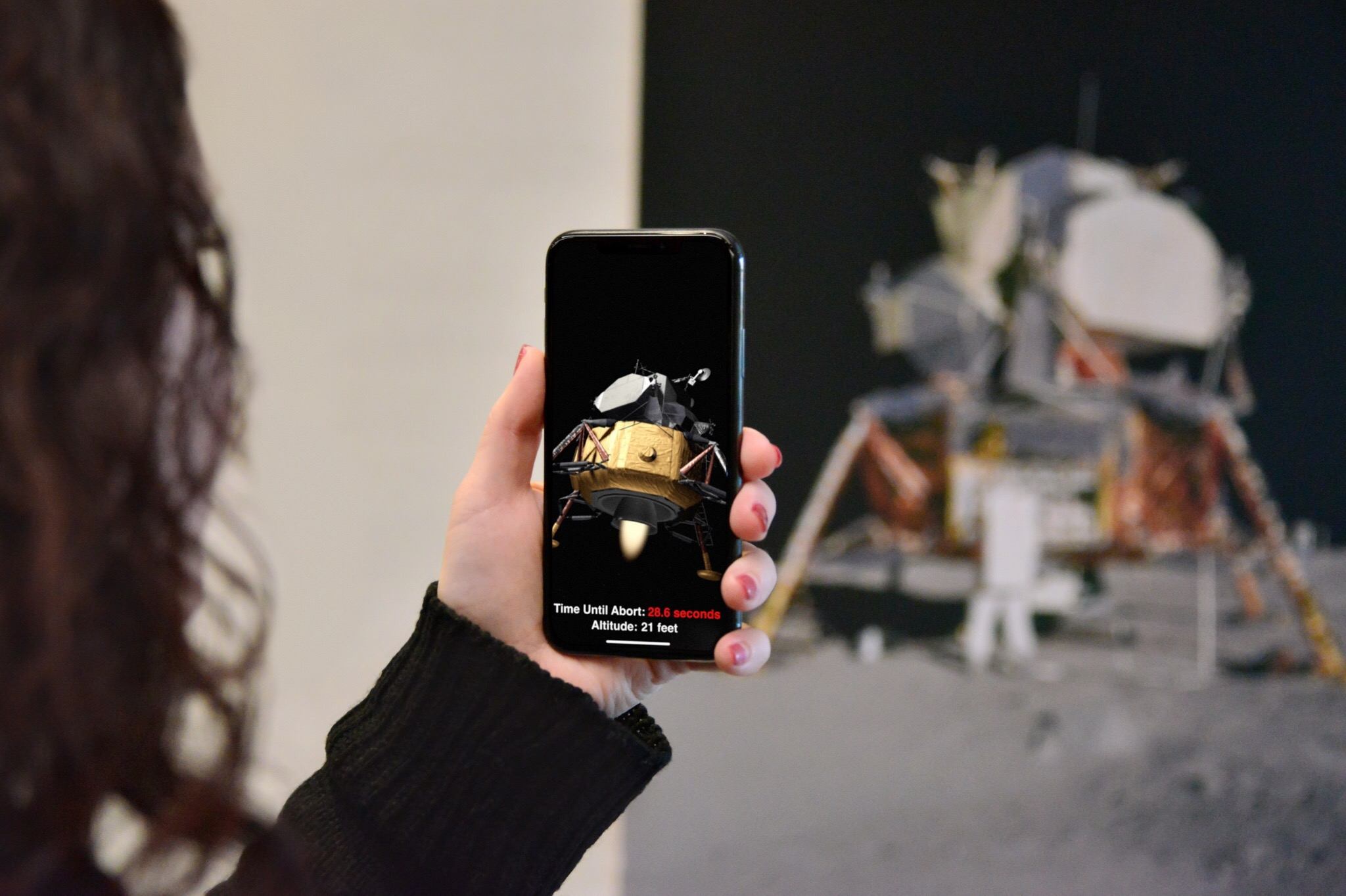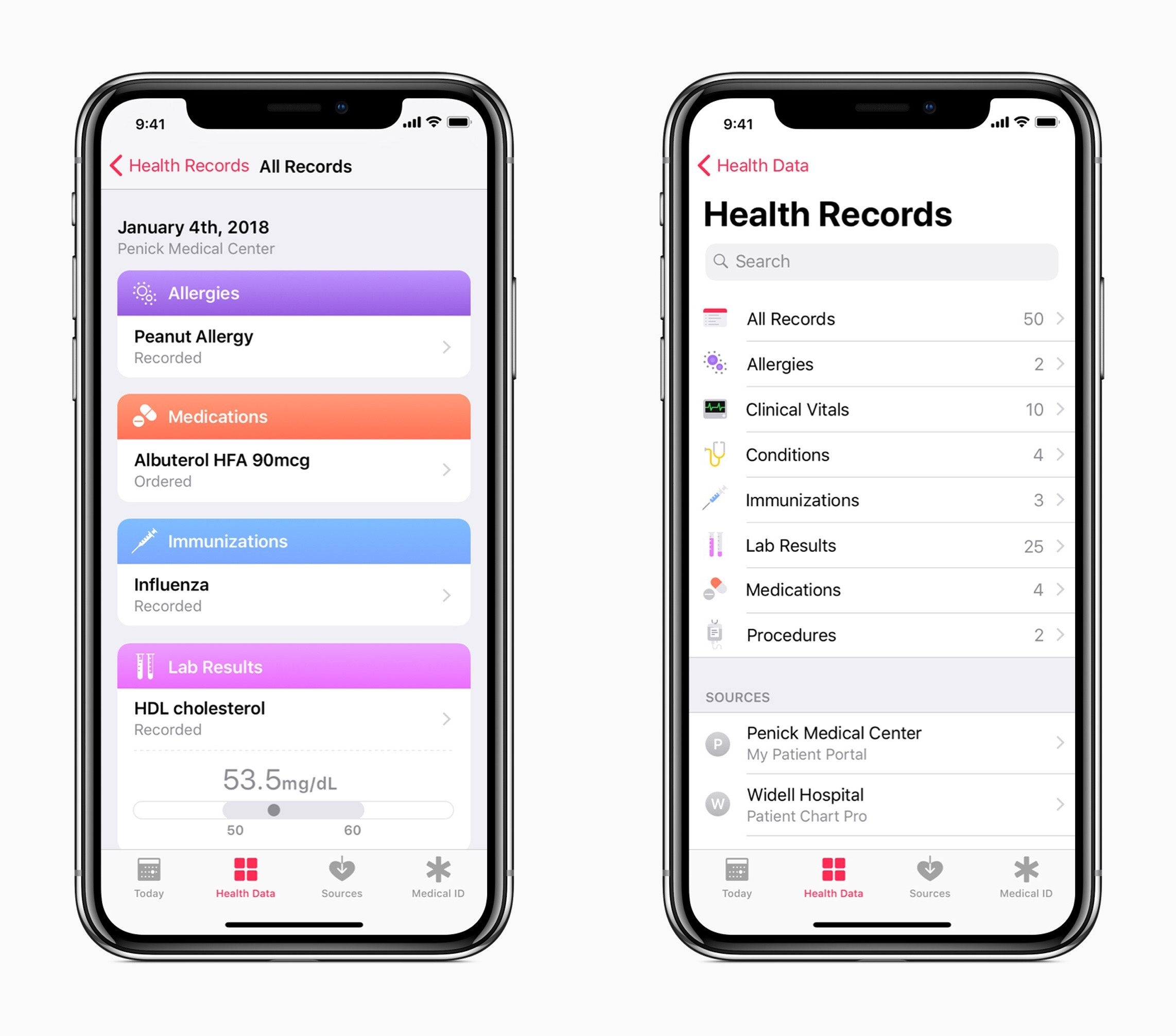In a press release, Apple today announced iOS 11.3, the third major update to iOS 11 set to be released in beta for developers later today, and launching to the general public this Spring. iOS 11.3 will improve upon iOS 11 and features that debuted alongside the iPhone X with new Animoji, a major upgrade to ARKit, the ability to store health records in the Health app, plus other improvements for built-in system apps.
Animoji
One of the marquee additions to iOS 11 for iPhone X, Animoji are Apple’s take on animated emoji that leverage the device’s TrueDepth camera system to recognize up to 50 different facial muscle movements and animate characters in real-time. So far, iPhone X users have been able to choose from 12 different Animoji; that number will go up to 16 with iOS 11.3, which will add a dragon, bear, skull, and lion to the roster of Animoji available in the Messages app.
New Animoji coming in iOS 11.3.Replay
Interestingly, Apple’s press release specifically points out Animoji karaoke videos as one of the innovative ways people have been using the iPhone X to express themselves outside of typical iMessage conversations. Animoji karaoke are, however, difficult to put together because Apple’s default Animoji iMessage app doesn’t support recording videos longer than 10 seconds. As a result, iPhone X owners interested in sharing Animoji karaoke videos have resorted to recording the screen of the Animoji picker in the Messages app, then editing the video and accompanying song in a separate video editing app.
It’s unclear if Apple’s specific mention of Animoji karaoke suggests the company is exploring ways to extend the limit of Animoji recording sessions, or if they’re perhaps even considering an Animoji karaoke feature for their Clips video app, but it’d be nice to see new options added to the default Animoji experience.
Messages
While today’s announcement doesn’t include any updates on Messages in iCloud (a feature originally announced alongside iOS 11 and later postponed to a future iOS 11 update), iOS 11.3 will see the public launch of another previously announced Messages feature – Business Chat.
Originally showed off at WWDC 2017, Business Chat is a way for businesses to communicate with their customers directly over iMessage. Apple’s goal with Business Chat is to elevate the customer service experience to take advantage of the best native features of iOS, such as iMessage’s inherent privacy and security, iMessage apps, Apple Pay, and integration with Maps, Safari, and Spotlight.
Business Chat lives inside the Messages app as a series of custom-themed iMessage threads with different businesses. In Apple’s screenshot of Business Chat with Lowe’s, for instance, the iMessage title bar is blue and features Lowe’s logo instead of a profile picture. Last year, Apple said that only customers can start a Business Chat session (businesses can’t spam you by starting Business Chat conversations whenever they want) and they can do so from Maps, Siri, Spotlight search results, or even the Safari address bar by tapping an iMessage button next to a business’ name. Business Chat supports both online-only businesses as well as nearby ones, and Apple wants to make it easy to start a conversation with a business – whether it’s a support question, tracking an order, or a general inquiry – without having to hunt down contact information. Business Chat conversations can also be started by scanning QR codes with the iPhone’s camera (a new feature in iOS 11).
Users retain full control over Business Chat: they can stop alerts from specific conversations, delete them when they’re no longer useful, and pay for products inline within an iMessage conversation using their Apple Pay wallet. By default, Business Chat protects user information by only sharing anonymized user IDs with businesses, which, however, can detect the user’s language and region to route them to the appropriate team or support agent.
It’ll be interesting to see how businesses will take advantage of their own iMessage apps as well as custom UIs and menus. In addition to having the customer interact with a custom iMessage bubble compatible with a business’ iMessage app (like, say, picking a seat from an airline’s own iMessage app), businesses can share attachments, present a list picker with multiple options, and bring up a date picker, which could be useful to reserve an appointment at a store. It’s possible that Apple itself may start using Business Chat as a new communication channel for Apple retail stores and the Apple online store.
Business Chat will launch as a public beta with iOS 11.3. According to Apple, select businesses such as Hilton, Discover, and Wells Fargo will support iMessage Business Chat at launch.
ARKit
iOS 11.3 will bring the first major update to ARKit, the augmented reality framework Apple introduced with iOS 11 last year. Dubbed ARKit 1.5, the new version will address one of the most common criticisms by developers who adopted ARKit in their apps: in addition to horizontal surfaces (like tables and chairs), ARKit on iOS 11.3 will support vertical surfaces like walls and doors, and it’ll be able to map irregularly shaped ones such as circular tables too. In talking to developers of ARKit software last year, lack of support for recognizing walls and placing objects on them was one of the most frequent complaints, so it’s good to see Apple getting rid of that limitation during the iOS 11 release cycle.
Furthermore, Apple says that ARKit will use new computer vision techniques to “find and recognize the position” of 2D images such as signs, posters, and artwork. These images can then be integrated into AR experiences to create even more immersive scenes that blend AR graphics with real-world movements and imagery. Apple’s provided example is filling a museum with interactive exhibits or “bringing a movie poster to life”, so it’ll be fascinating to see what developers will create through built-in recognition of 2D images via the iPhone’s camera in ARKit mode. Speaking of which, Apple also confirmed that ARKit’s camera will offer 50% greater resolution and auto-focus in iOS 11.3, which should result in a sharper, more detailed perspective.
Batteries and Performance
As previously announced by Apple and later hinted by Tim Cook, iOS 11.3 adds new features to show battery health, with contextual recommendations if it needs to be serviced. The new screen will be available under Settings ⇾ Battery for the iPhone 6 and later.
In addition, the power management feature that “dynamically manages maximum performance to prevent unexpected shutdowns”, otherwise known as throttling, will become an option that can be turned off in Settings ⇾ Battery as well, available on the iPhone 6, iPhone 6 Plus, iPhone SE, iPhone 6s, iPhone 6s Plus, iPhone 7 and iPhone 7 Plus.
According to Apple, both the battery health and performance throttling setting will not be available in today’s first beta of iOS 11.3, but will instead be coming in a later beta release.
Health Records
Also announced today with a dedicated press release, Health Records is a new section of the Health app that connects hospitals and clinics with iPhone users so they can see their medical data from multiple providers in a unified interface.
Essentially, patients from participating institutions will have their information organized into a single view and receive notifications for lab results, conditions, medications, allergies, and more. All these data points are encrypted, protected with a passcode, and beautifully integrated with the design of the Health app in iOS 11.
From Apple’s press release:
“Our goal is to help consumers live a better day. We’ve worked closely with the health community to create an experience everyone has wanted for years — to view medical records easily and securely right on your iPhone,” said Jeff Williams, Apple’s COO. “By empowering customers to see their overall health, we hope to help consumers better understand their health and help them lead healthier lives.”
“Streamlining information sharing between patients and their caregivers can go a long way towards making the patient experience a positive one,” said Stephanie Reel, Chief Information Officer at Johns Hopkins Medicine. “This is why we are excited about working with Apple to make accessing secure medical records from an iPhone as simple for a patient as checking email.”
As part of the iOS 11.3 beta, Health Records will be available to the patients of the following medical institutions:
- Johns Hopkins Medicine - Baltimore, Maryland
- Cedars-Sinai - Los Angeles, California
- Penn Medicine - Philadelphia, Pennsylvania
- Geisinger Health System - Danville, Pennsylvania
- UC San Diego Health - San Diego, California
- UNC Health Care - Chapel Hill, North Carolina
- Rush University Medical Center - Chicago, Illinois
- Dignity Health - Arizona, California and Nevada
- Ochsner Health System - Jefferson Parish, Louisiana
- MedStar Health - Washington, D.C., Maryland and Virginia
- OhioHealth - Columbus, Ohio
- Cerner Healthe Clinic - Kansas City, Missouri
According to Apple, more medical facilities will connect to Health Records “in the coming months”, offering patients access to the new feature on their iPhones. Apple will provide more details for health institutions on this webpage.
And More…
There are other new features coming to iOS 11.3, and possibly even more that will be discovered by users in the upcoming beta. Here’s a list of what Apple announced this morning:
Music videos in Apple Music. Apple appears to be taking a shot at YouTube with the addition of music videos to Apple Music. While certain video clips were available in Apple Music before, Apple now says that users “can stream all the music videos they want without being interrupted by ads”; these include “the hottest new videos” in addition to classics and videos from their favorite artists back-to-back. The new initiative will also offer new music video playlists in Apple Music, and it’ll be interesting to see how this increased amount of video content will be integrated with Apple Music’s interface and personalized recommendations.
Apple News updates. iOS 11.3 builds upon the video features introduced in September with a new Video group in the For You section that aggregates the “most important” videos of the day (these were previously tucked away in the News Editors’ Picks channel), plus improved Top Stories.
HomeKit software authentication. Also announced with iOS 11, it appears that software authentication for home automation devices by third-party manufacturers will actually become available with iOS 11.3. As I detailed in my review of iOS 11, this feature has the potential to considerably expand the breadth and depth of the HomeKit ecosystem by adding HomeKit support to existing devices that don’t integrate with Apple’s APIs yet.
Support for AML. Advanced Mobile Location is a caller location technique that automatically sends a user’s current location when making a call to emergency services. AML is currently deployed in the UK, Estonia, Lithuania, Belgium, Iceland, Finland, Ireland, New Zealand and Austria.
It’s now become an annual tradition that the third major update to iOS, usually previewed at the beginning of the year and launched in the Spring, contains a bevy of new features and substantial improvements to the overall experience. We’ll be taking a deeper look at all the changes in iOS 11.3 for its final public release; personally, as someone who reviewed iOS 11 in depth, I’m curious to see how features announced today will impact my daily iPhone X usage, but also if the iPad – arguably, the focus of iOS 11 in September – will get any attention with iOS 11.3.
A first developer beta of iOS 11.3 will be released today, with a public beta to follow. You can find all previous (and future) iOS 11 coverage here.





